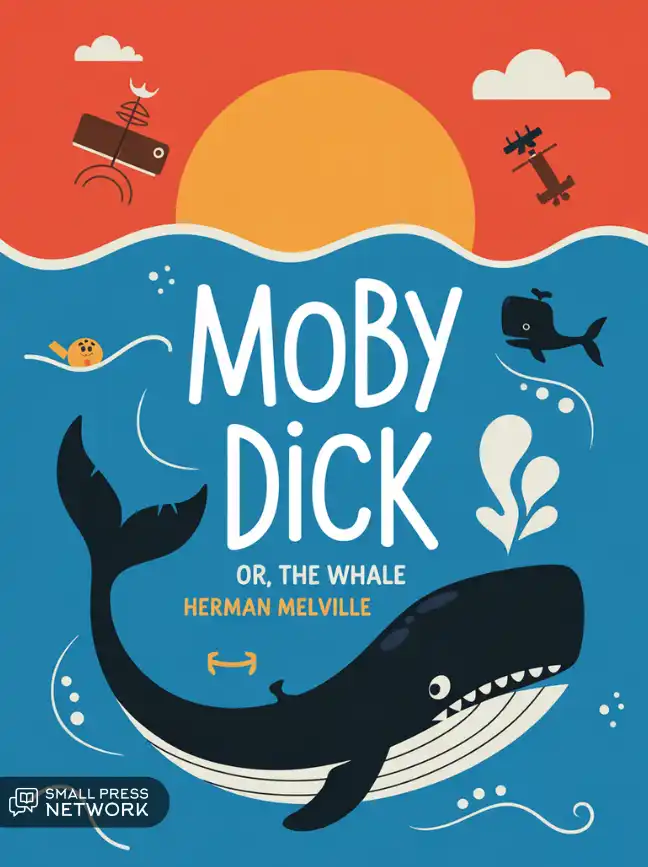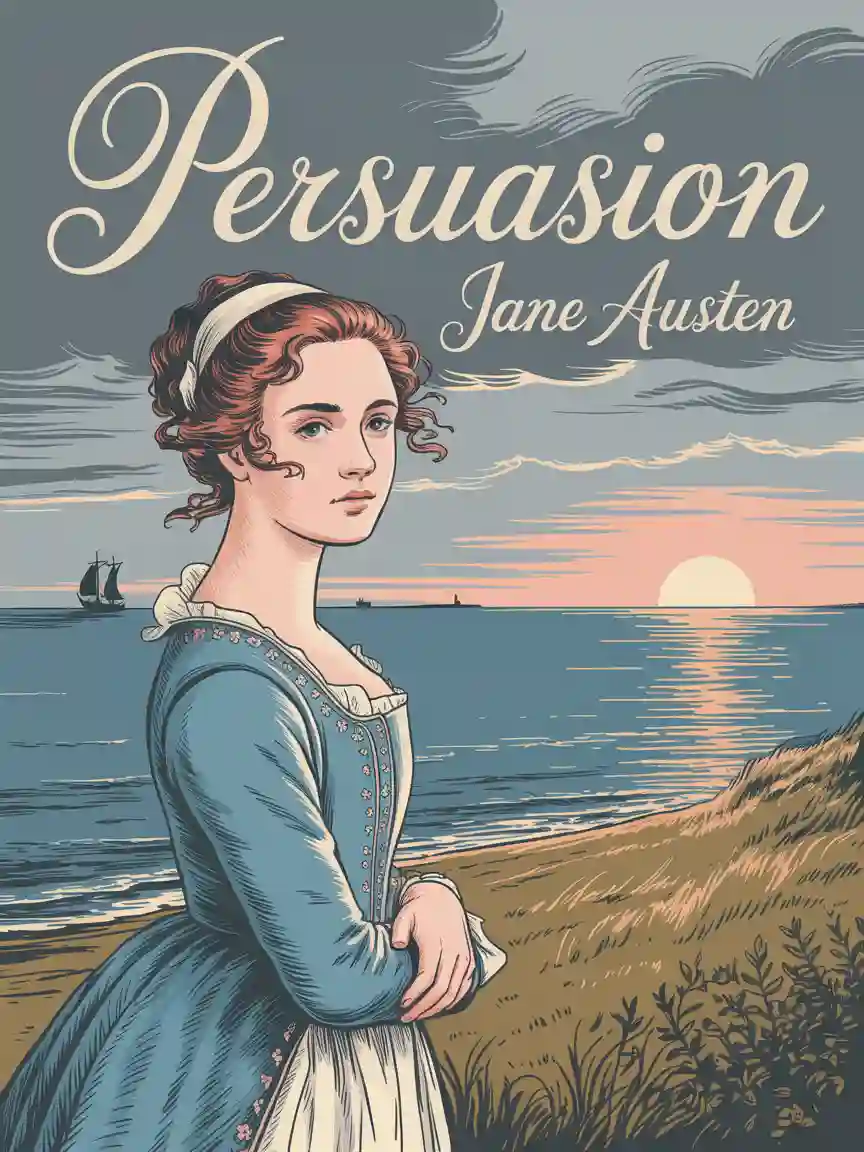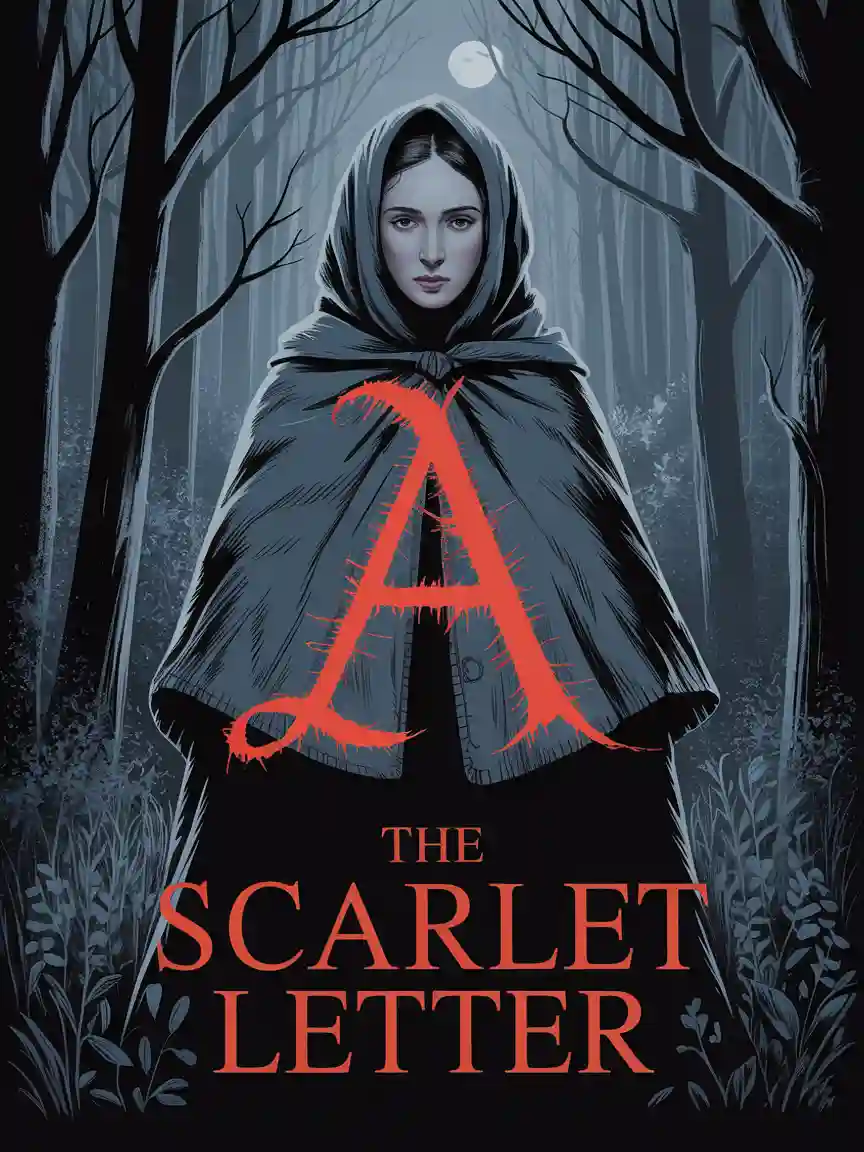CHAPTER 29
Enter Ahab; to Him, Stubb
Some days elapsed, and ice and icebergs all astern, the Pequod now went
rolling through the bright Quito spring, which at sea, almost perpetually
reigns on the threshold of the eternal August of the Tropic. The warmly
cool, clear, ringing perfumed, overflowing, redundant days, were as crystal
goblets of Persian sherbet, heaped up— flaked up, with rose-water snow.
The starred and stately nights seemed haughty dames in jewelled velvets,
nursing at home in lonely pride, the memory of their absent conquering
Earls, the golden helmeted suns! For sleeping man, ’twas hard to choose
between such winsome days and such seducing nights. But all the
witcheries of that unwaning weather did not merely lend new spells and
potencies to the outward world. Inward they turned upon the soul,
especially when the still mild hours of eve came on; then, memory shot her
crystals as the clear ice most forms of noiseless twilights. And all these
subtle agencies, more and more they wrought on Ahab’s texture.
Old age is always wakeful; as if, the longer linked with life, the less man
has to do with aught that looks like death. Among sea-commanders, the old
greybeards will oftenest leave their berths to visit the night-cloaked deck. It
was so with Ahab; only that now, of late, he seemed so much to live in the
open air, that truly speaking, his visits were more to the cabin, than from the
cabin to the planks. “It feels like going down into one’s tomb,”—he would
mutter to himself—”for an old captain like me to be descending this narrow
scuttle, to go to my grave-dug berth.”
So, almost every twenty-four hours, when the watches of the night were
set, and the band on deck sentinelled the slumbers of the band below; and
when if a rope was to be hauled upon the forecastle, the sailors flung it not
rudely down, as by day, but with some cautiousness dropt it to its place for
fear of disturbing their slumbering shipmates; when this sort of steady
quietude would begin to prevail, habitually, the silent steersman would
watch the cabin-scuttle; and ere long the old man would emerge, gripping at
the iron banister, to help his crippled way. Some considering touch of
humanity was in him; for at times like these, he usually abstained from
patrolling the quarter-deck; because to his wearied mates, seeking repose
within six inches of his ivory heel, such would have been the reverberating
crack and din of that bony step, that their dreams would have been of the
crunching teeth of sharks. But once, the mood was on him too deep for
common regardings; and as with heavy, lumber-like pace he was measuring
the ship from taffrail to mainmast, Stubb, the old second mate, came up
from below, and with a certain unassured, deprecating humorousness,
hinted that if Captain Ahab was pleased to walk the planks, then, no one
could say nay; but there might be some way of muffling the noise; hinting
something indistinctly and hesitatingly about a globe of tow, and the
insertion into it, of the ivory heel. Ah! Stubb, thou didst not know Ahab
then.
“Am I a cannon-ball, Stubb,” said Ahab, “that thou wouldst wad me that
fashion? But go thy ways; I had forgot. Below to thy nightly grave; where
such as ye sleep between shrouds, to use ye to the filling one at last.—
Down, dog, and kennel!”
Starting at the unforeseen concluding exclamation of the so suddenly
scornful old man, Stubb was speechless a moment; then said excitedly, “I
am not used to be spoken to that way, sir; I do but less than half like it, sir.”
“Avast! gritted Ahab between his set teeth, and violently moving away, as
if to avoid some passionate temptation.
“No, sir; not yet,” said Stubb, emboldened, “I will not tamely be called a
dog, sir.”
“Then be called ten times a donkey, and a mule, and an ass, and begone,
or I’ll clear the world of thee!”
As he said this, Ahab advanced upon him with such overbearing terrors
in his aspect, that Stubb involuntarily retreated.
“I was never served so before without giving a hard blow for it,”
muttered Stubb, as he found himself descending the cabin-scuttle. “It’s very
queer. Stop, Stubb; somehow, now, I don’t well know whether to go back
and strike him, or—what’s that?— down here on my knees and pray for
him? Yes, that was the thought coming up in me; but it would be the first
time I ever did pray. It’s queer; very queer; and he’s queer too; aye, take him
fore and aft, he’s about the queerest old man Stubb ever sailed with. How he
flashed at me!—his eyes like powder-pans! is he mad! Anyway there’s
something’s on his mind, as sure as there must be something on a deck
when it cracks. He aint in his bed now, either, more than three hours out of
the twenty-four; and he don’t sleep then. Didn’t that Dough-Boy, the
steward, tell me that of a morning he always finds the old man’s hammock
clothes all rumpled and tumbled, and the sheets down at the foot, and the
coverlid almost tied into knots, and the pillow a sort of frightful hot, as
though a baked brick had been on it? A hot old man! I guess he’s got what
some folks ashore call a conscience; it’s a kind of Tic-Dolly-row they say—
worse nor a toothache. Well, well; I don’t know what it is, but the Lord keep
me from catching it. He’s full of riddles; I wonder what he goes into the
after hold for, every night, as Dough-Boy tells me he suspects; what’s that
for, I should like to know? Who’s made appointments with him in the hold?
Ain’t that queer, now? But there’s no telling, it’s the old game— Here goes
for a snooze. Damn me, it’s worth a fellow’s while to be born into the world,
if only to fall right asleep. And now that I think of it, that’s about the first
thing babies do, and that’s a sort of queer, too. Damn me, but all things are
queer, come to think of ’em. But that’s against my principles. Think not, is
my eleventh commandment; and sleep when you can, is my twelfth—So
here goes again. But how’s that? didn’t he call me a dog? blazes! he called
me ten times a donkey, and piled a lot of jackasses on top of that! He might
as well have kicked me, and done with it. Maybe he did kick me, and I
didn’t observe it, I was so taken all aback with his brow, somehow. It
flashed like a bleached bone. What the devil’s the matter with me? I don’t
stand right on my legs. Coming afoul of that old man has a sort of turned
me wrong side out. By the Lord, I must have been dreaming, though—
How? how? how?— but the only way’s to stash it; so here goes to hammock
again; and in the morning, I’ll see how this plaguey juggling thinks over by
daylight.”





